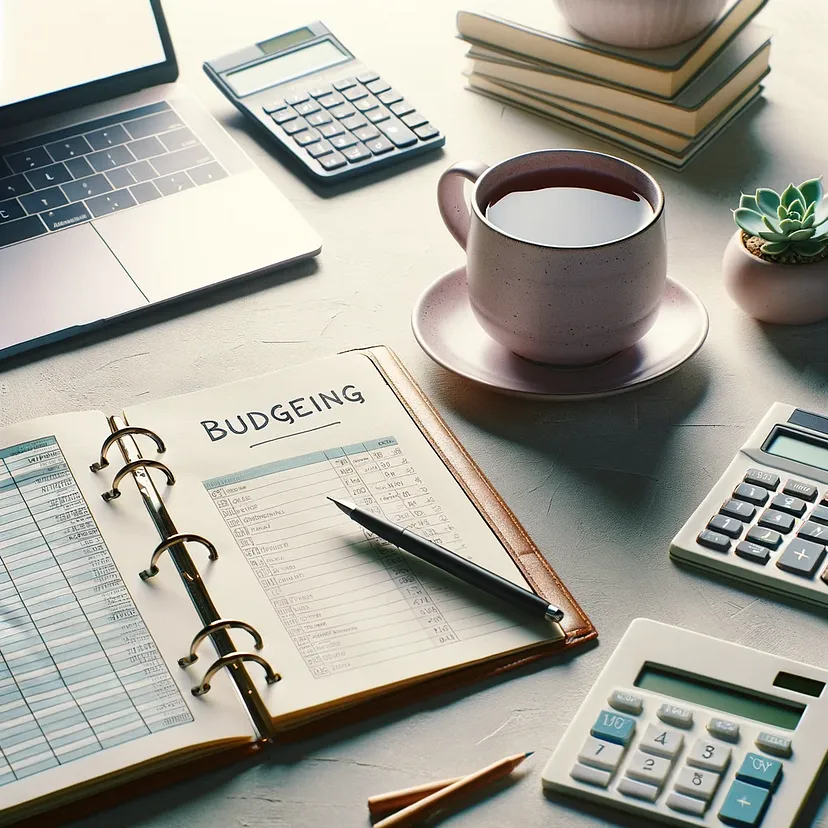Debt Management and Financial Freedom
Why Did My Credit Rating Drop? 11 Reasons
Your credit rating is a vital number that may have a big effect in your life. Even though it is just three digits, it could possibly tell potential lenders rather a lot about your creditworthiness. If you happen to often monitor your funds, you could notice when your credit rating lowers. If it happens unexpectedly, you may ask, “Why did my credit rating drop?”
In this text, I’ll walk you thru a few of the reasons behind a drop in credit rating. Plus, I’ll also highlight ways to get your credit rating back on the proper track.
Why did my credit rating drop? 11 Common aspects
A credit rating is a mirrored image of your credit report. The aspects that affect your credit rating can pull it down or construct it up depending in your decisions and things like length of credit history, payment history, and more.
So wondering, “Why did my credit rating drop?” Let’s take a look at eleven common reasons for a decrease in your credit rating.
1. Too many hard credit inquiries
When applying for brand new loans, you’re likely keeping a detailed eye in your credit rating. Chances are you’ll notice a pointy drop while you’re within the midst of applying for brand new loans.
On this case, the drop in your credit rating is probably going a results of too many hard credit inquiries. Whenever you apply for credit, lenders and bank card issuers will pull your complete credit report to find out your creditworthiness.
Although credit inquiries play a small role in your overall credit rating, it could possibly be the explanation behind your most up-to-date drop.
If you happen to’ve applied to several latest lines of credit previously month, that is the almost definitely reason for the drop. If you happen to’re concerned that checking your credit rating lowers it, comprehend it is just not considered a tough inquiry. You’ll only must worry about hard inquiries in the event you apply for a brand new loan or line of credit.
2. Late and missed payments
A late payment can blemish your credit report, decreasing your credit rating. That is particularly true in the event you make late payments consistently. If you happen to missed a payment altogether, that would cause your credit rating to drop too.
Lenders favor borrowers who could make on-time payments often. A lower credit rating could illustrate to potential lenders that you simply aren’t consistent about making on-time payments.
3. Growing balances
The balance of revolving credit lines—like bank cards—can fluctuate every month.
For instance, if you might have bank card debt, it could possibly grow every month that you simply don’t repay your bank card account balance in full.
A growing amount of revolving debt results in a rise in your bank card utilization ratio. If you might have a $10,000 credit limit with a balance of $5,000, then you might have a utilization rate of fifty%.
Within the FICO scoring model, around 30% of your FICO score comes from amounts owed. Knowing this, I like to recommend keeping your bank card and other revolving balances as little as possible. Many experts recommend keeping your credit utilization rate under 30% to stop a negative impact in your rating.
4. Why did my credit rating drop after closing an old account?
Although it could possibly be tempting to shut an account because you could think it’s one of the best solution to get out of debt, that may result in a drop in your credit rating.
FICO credit scores factor in the length of your credit history when calculating your rating. Older accounts are considered a positive feature of your credit history.
In any case, in the event you’ve been in a position to manage your credit for an extended time frame responsibly, then lenders wish to work with you. As you close up older accounts, the common age of your credit accounts will fall and possibly drag your credit rating down as well.
5. Bankruptcies in your credit report
Foreclosures and bankruptcies can significantly impact your credit rating. A giant dip in your credit rating could result from a recent foreclosure or bankruptcy.
Normally, this sort of mark in your credit report may have a big negative effect in your rating. Unfortunately, the effects could impact your credit score for years.
6. Identity theft
Why did my credit rating go down when nothing modified?
This query gets asked rather a lot. In any case, why would your rating drop if nothing has modified in your financial situation? One reason is identity theft.
Being a victim of identity theft is considered one of the worst reasons there’s a drop in your credit rating. If this happens, people can use your identity to use for loans corresponding to bank cards, open utility accounts in your name, and even steal your tax refund!
That’s why I suggest monitoring your credit often so you’ll be able to ensure all the pieces on it’s legitimate. If someone is racking up debt and not paying bills in your name, it could possibly be detrimental to your funds.
7. An error in your credit report
One other answer to the query, “Why did my credit rating go down when nothing modified?” is solely a mistake in your credit report.
It’s sometimes possible that creditors made an inaccurate report back to the credit bureaus (Equifax, TransUnion, and Experian). The error, in turn, impacts your rating.
As soon as you discover an error, contact the reporting company to dispute the error in your credit report. You may additionally wish to contact the credit bureaus to tell them of the error.
8. Credit limit was reduced
Another excuse you possibly can have a drop in your score is if a credit limit was reduced due to lack of use or due to changes in your credit. It could reduce your overall debt-to-credit ratio, which could impact your rating.
You’ll be able to contact the corporate to ask why they decreased your limit and possibly have it restored if possible. Also, paying down the balance will improve your rating, so work on a debt reduction strategy and repay your card monthly.
9. Paid off a loan
“I paid off a loan, so why did my credit rating drop?”
While paying off a loan is thing—in any case, you’re getting out of debt!—it could possibly negatively affect your credit rating. There are a number of reasons for this:
- You reduced your credit mix.
- You closed the last account of a certain variety of credit.
Paying off a loan reduces the quantity of debt you owe and the variety of credit accounts you might have. A part of your credit rating for many scoring models includes your credit mix and the way many differing types of credit you might have.
Having a manageable mixture of auto loans, student loans, mortgage payments, and bank cards may also help show lenders you’re a responsible borrower—whatever the variety of credit being offered. Whenever you repay a loan, like a automobile loan, you’re removing a variety of credit out of your credit report.
10. Charge-offs on unpaid balances
If you happen to simply stopped paying your debts, your creditors might write off the debt as uncollectable, referred to as a charge-off. It doesn’t mean you don’t should pay your debt, but you could be paying a debt collection agency as a substitute of your original lender.
Having a charge-off in your credit report can have negative effects. A charge-off can show up on your credit report for years to come. This makes improving your credit rating or securing latest credit accounts even harder.
Luckily, you could give you the chance to remove a charge-off out of your credit report.
11. Debt settlement
Debt settlement is negotiating with creditors to repay your debt for a smaller amount than you owe. While this might sound like solution to reduce debt, your credit rating will feel the consequences of settling debt.
Whenever you settle a debt, you and your creditors are agreeing that you’ll never have the funds to pay the entire amount owed. The creditor takes a loss on the debt within the hopes of recouping a few of the money they’re owed. This agreement is reported to the credit bureaus, who add it to your credit report.
Debt settlement is mostly preferable to bankruptcy, but it could possibly cause similar problems to your credit rating. Settled debts are inclined to stay in your credit report for seven years, according to Experian. When a brand new lender sees that you simply settled a debt, they could be wary of lending money to you.
Expert tip: Don’t panic in case your credit rating changes barely
Credit scoring models, like FICO, use formulas to calculate credit scores. Small changes in these formulas may cause your credit score to fluctuate slightly.
If you happen to find your rating went up or down barely, it’s not normally a cause for concern. I like to recommend specializing in making payments on time, paying off debt, and watching your credit rating for any big changes.
Why did my credit rating go down when nothing modified and the way can I tell?
The most effective place to begin is by often monitoring your credit rating. I even have two favorite resources that may assist you to monitor your credit report without cost:
Credit Karma
Credit Karma is a user-friendly site that may send you helpful alerts about your credit rating. If there’s a drop, you then’ll give you the chance to act quickly.
With Credit Karma, you’ll have access to your credit rating and credit reports from two of the three major credit bureaus.
The reports are updated weekly, so that you’ll give you the chance to envision your credit report every time you’d prefer to.
Annualcreditreport.com
The name gives away the services offered by this site; you’ll give you the chance to see a credit report every 12 months. With this free credit report, you’ll be able to check to make sure all of your information is accurate yearly.
Each options are trusted and useful ways to watch your credit rating. Take a minute to think about these options and choose which option will work best for you.
4 Ways to extend your credit rating after a drop
If you happen to’ve noticed a recent drop in your VantageScore or FICO credit rating, rebuilding your credit is perhaps a top priority. Luckily, it is totally possible to rebuild your credit.
As you improve your credit rating, you’ll unlock higher loan terms and rates for big purchases corresponding to a house down payment or automobile. Higher loan terms can lead to 1000’s of dollars of savings over the lifetime of your loan.
If you happen to implement the strategies below, you is perhaps surprised how quickly your rating can rebound. Let’s take a more in-depth take a look at one of the best ways to begin improving your credit rating.
1. Pay down revolving debt balances
Revolving debt is related to lines of credit that you may access with ease, corresponding to your bank card or your own home equity line of credit. Every month, you’ll be able to potentially increase or lower the quantity of this revolving debt.
These loans differ from installment loans, corresponding to a private loan with a scheduled repayment timeline and monthly payment. If you happen to’ve allowed your bank card balances to grow, that may likely hurt your credit rating, causing it to drop.
The answer is to pay down bank cards fast. Although becoming debt-free may be difficult, paying down your debt is totally possible.
Think about using the snowball method to kickstart your debt repayment journey. Along the way in which, you could need to think about starting a side hustle to extend your income or meal planning to remain on budget.
As you begin to pay down your debt, have a good time the small wins. Every dollar you pay down is progress in your journey. It might not be an overnight path, but every step you are taking will bring you closer to being debt-free.
Plus, you’ll likely raise your credit rating in the method.
2. Make on-time payments
Lenders value borrowers who can consistently make on-time payments to their debts.
In actual fact, making on-time payments is considered one of the fastest ways to enhance your credit rating. One solution to consistently make on-time payments is to automate your funds.
Automation may be the key to learning the best way to manage your money efficiently. You’ll not must worry about whether or not you remembered to pay your bills. As a substitute, your entire debt payments will likely be made on time with none headaches for you.
3. Credit builder loans
A credit builder loan is a surefire solution to improve your credit rating in the event you could make on-time payments. If you happen to take out a credit builder loan, the loan amount will likely be held in a checking account until you repay the loan. Throughout the loan, you’ll make on-time payments that the lender reports to the credit bureaus.
The payments you make along the way in which will include each principal and interest. At the tip of the loan term, you’ll receive the cash the lender has been holding in your account. You’ll give you the chance to construct your credit rating and learn the best way to get monetary savings at the identical time.
4. Take our free course on the best way to construct good credit
Since credit rating can prevent 1000’s of dollars, it’s critical to take motion. If you must learn more in regards to the ins and outs of constructing credit, then our free “Build Good Credit” course is a great resource.
You’ll learn more in regards to the aspects that affect your credit rating.
Moreover, you’ll learn more about specific motion steps that you may take to enhance your credit rating.
How long does a credit rating drop last?
The period of time a drop in your credit lasts depends rather a lot on what caused it to drop in the primary place. Using a considerable amount of your bank card limit or having a number of hard inquiries in your credit report, for instance, often only drops your rating temporarily.
Missing several payments or settling a debt, then again, will likely cause a big drop in your rating—and due to this fact take longer to construct back up.
The most effective thing you’ll be able to do in case your credit rating drops (after checking for fraud) is to proceed making on-time payments and dealing to lower the quantity of credit you utilize.
Why is my credit rating so low when I even have no debt?
There are numerous explanation why your rating is perhaps low even in the event you’re not carrying debt—and your lack of debt could also be a part of the cause. Creditors generally prefer to see a mixture of various credit types when taking a look at your credit rating.
For instance, an individual with credit mix might need a automobile loan, mortgage, and bank cards with on-time payments.
Articles related to credit scores
This post offers much information to reply, “Why did my credit rating drop?” To seek out out more about credit, take a look at these other great reads!
It’s possible to rebuild your credit!
credit rating can unlock higher loan terms for the massive purchases in your life. With higher loan terms, you’ll be able to potentially save 1000’s of dollars over the lifetime of those major purchases, corresponding to a house.
Remember, at the tip of the day, it’s all about using credit correctly. For more terrific financial tips about improving your credit, ditching debt, saving money, and constructing wealth, tune in to the Clever Girls Podcast and YouTube channel!





